Being freelancers doesn’t mean we have to do this alone, protecting ourselves from our competition.
The defensive stance of guarding our experiences blocks the one source of spot-on bona fide feedback.
Being freelancers doesn’t mean we have to do this alone, protecting ourselves from our competition.
The defensive stance of guarding our experiences blocks the one source of spot-on bona fide feedback.
Photographer’s office hours can be challenging as it’s not exactly what we signed up for. Or is it? “Office hours” keep us plugged into work mode with random actions motivating us to keep going. Have your resources and your people, and reach out to those you want to connect with for no clear-cut reason. Plug yourself into all that keeps the office activated.
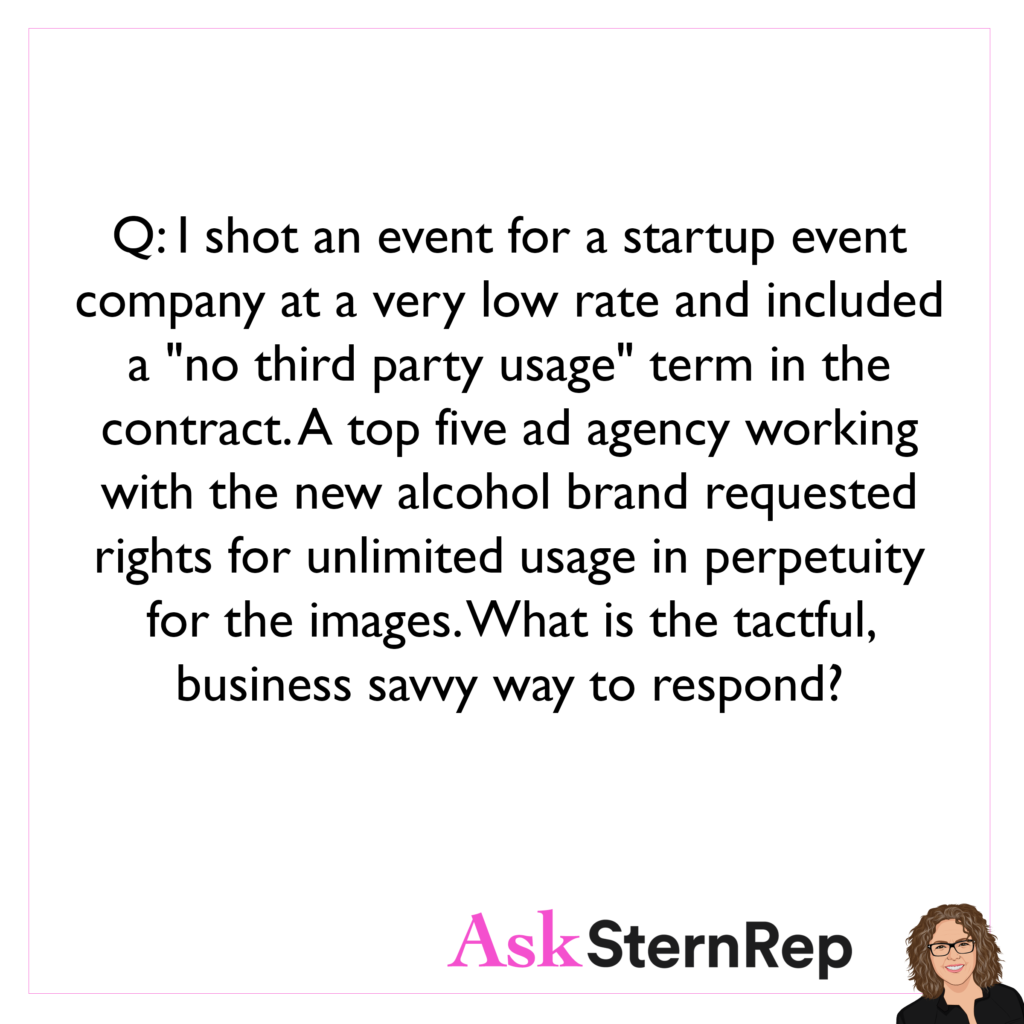
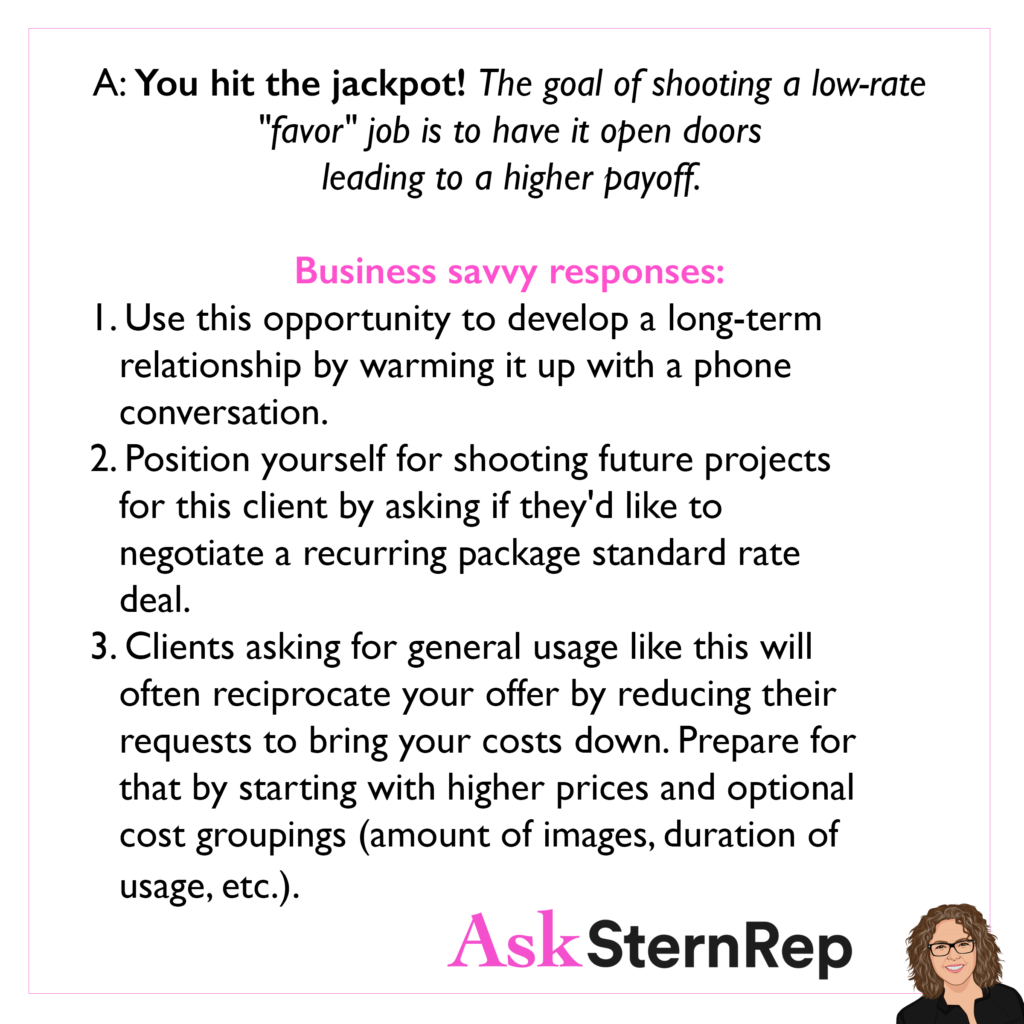
I shot an event for a startup event company at a very low rate and included a “no third party usage” term in the contract. A top five ad agency working with the new alcohol brand requested rights for unlimited usage in perpetuity for the images. What is the tactful, business-savvy way to respond?
You hit the jackpot! The goal of shooting a low-rate “favor” job is to have it open doors leading to a higher payoff.
Business savvy responses:
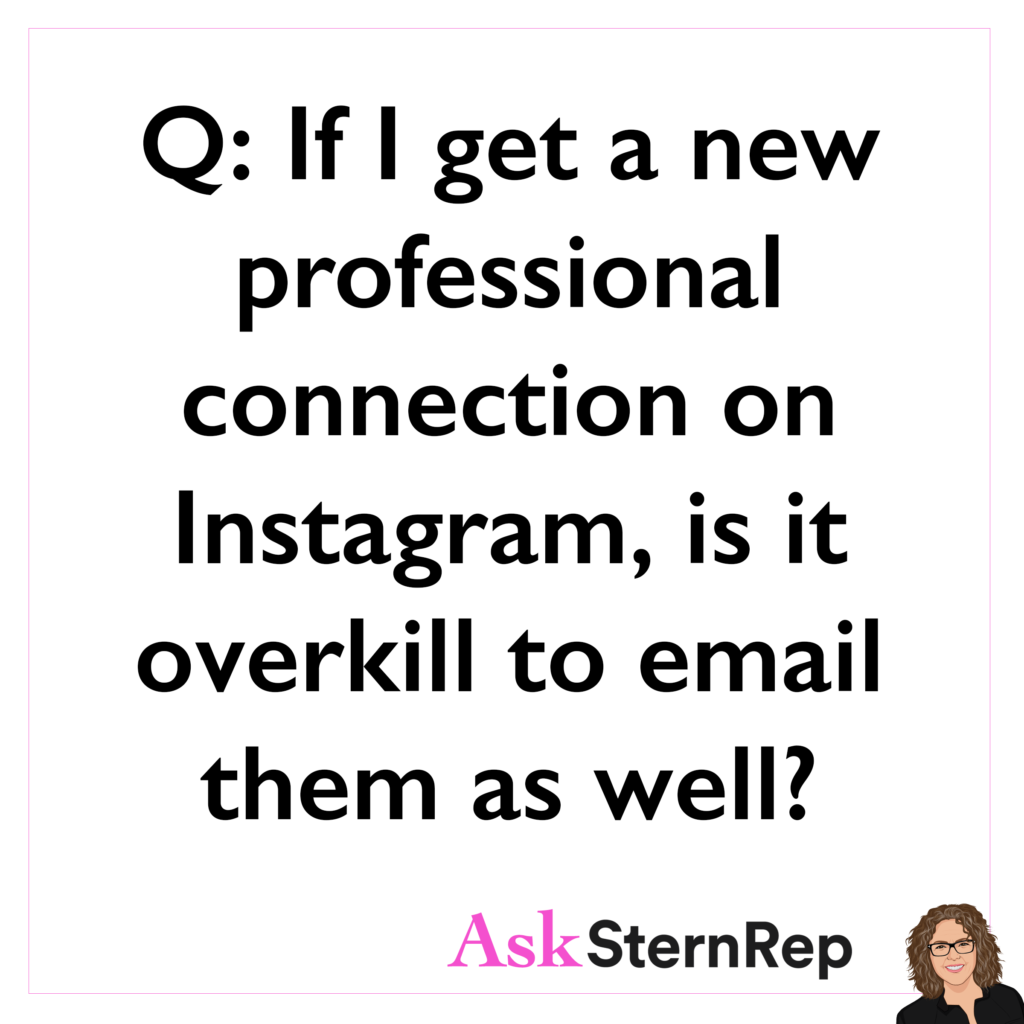
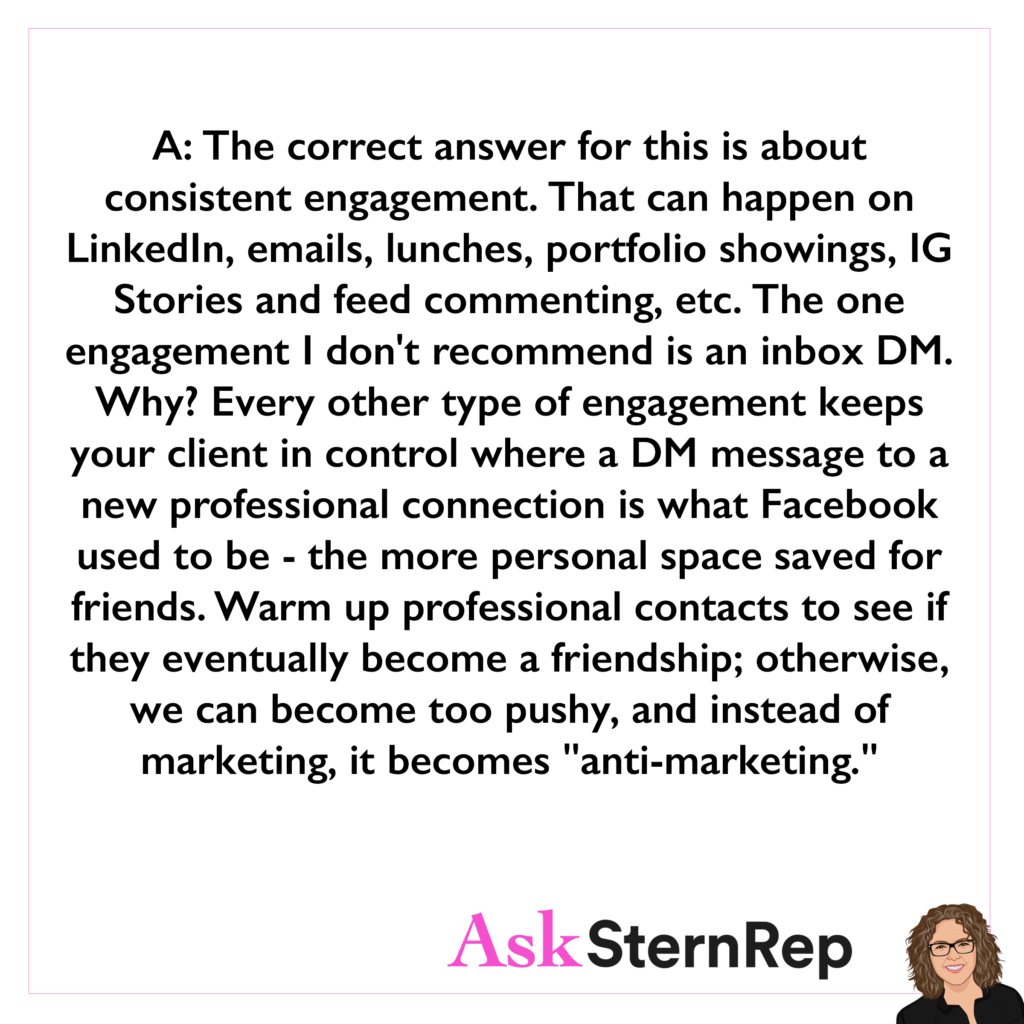
If I get a new professional connection on Instagram, is it overkill to email them as well?
The correct answer for this is about consistent engagement. That can happen on LinkedIn, emails, lunches, portfolio showings, IG Stories and feed commenting, etc. The one engagement I don’t recommend is an inbox DM. Why? Every other type of engagement keeps your client in control where a DM message to a new professional connection is what Facebook used to be – the more personal space saved for friends. Warm up professional contacts to see if they eventually become a friendship; otherwise, we can become too pushy, and instead of marketing, it becomes “anti-marketing.”
What is your special something? What do you offer that is your secret sauce, your tipping point, what do you offer that sets you apart?
Maximize your SELLING POINTS by reassuring the client they are in good hands, relying on your specialty to get the job done.
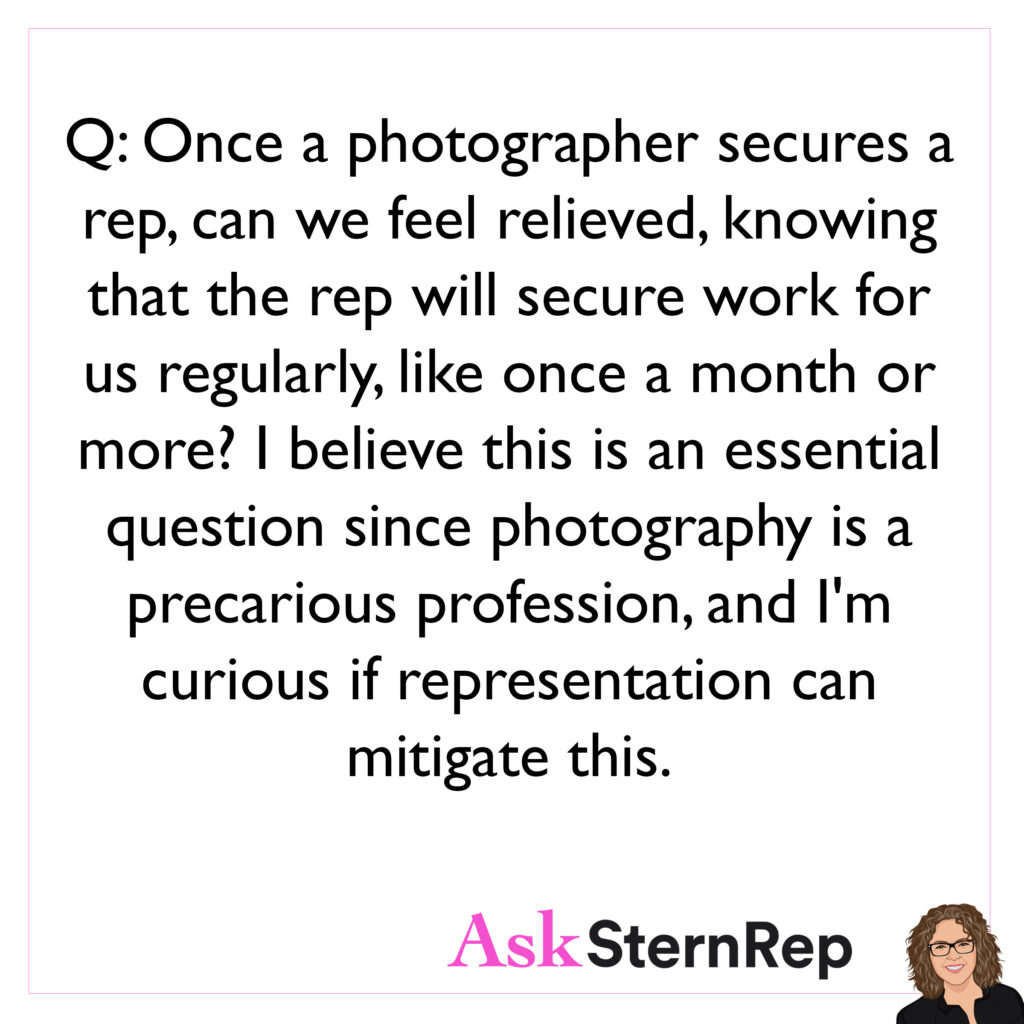
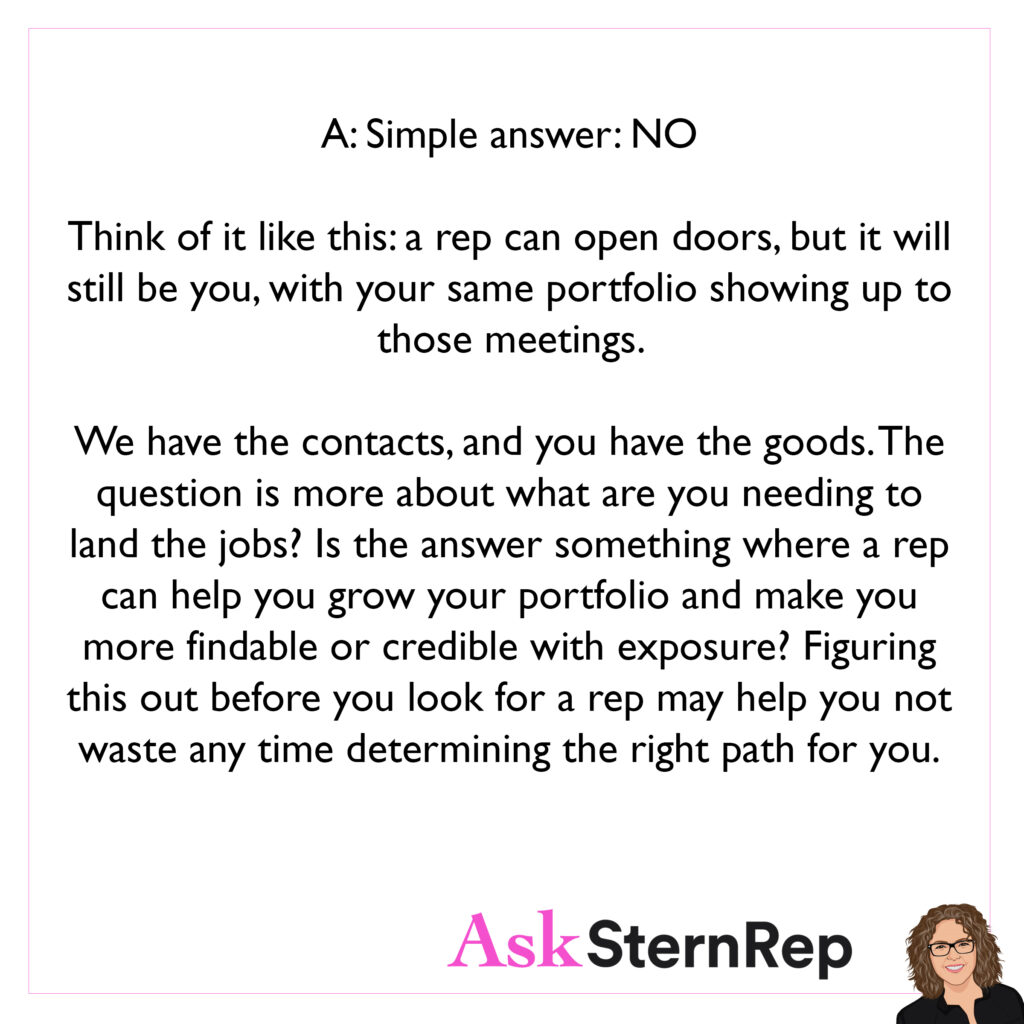
Once a photographer secures a rep, can we feel relieved, knowing that the rep will secure work for us regularly, like once a month or more? I believe this is an essential question since photography is a precarious profession, and I’m curious if representation can mitigate this.
Simple answer: NO
Think of it like this: a rep can open doors, but it will still be you, with your same portfolio showing up to those meetings.
We have the contacts, and you have the goods. The question is more about what are you needing to land the jobs? Is the answer something where a rep can help you grow your portfolio and make you more findable or credible with exposure? Figuring this out before you look for a rep may help you not waste any time determining the right path for you.
One of the best professional lessons I learned was to keep negatively emotionally charged reactions in check.
Frustration is a normal part of our business but unleashing that onto people we work with is not cool and not professional. Don’t risk it even if it feels rational at the moment.
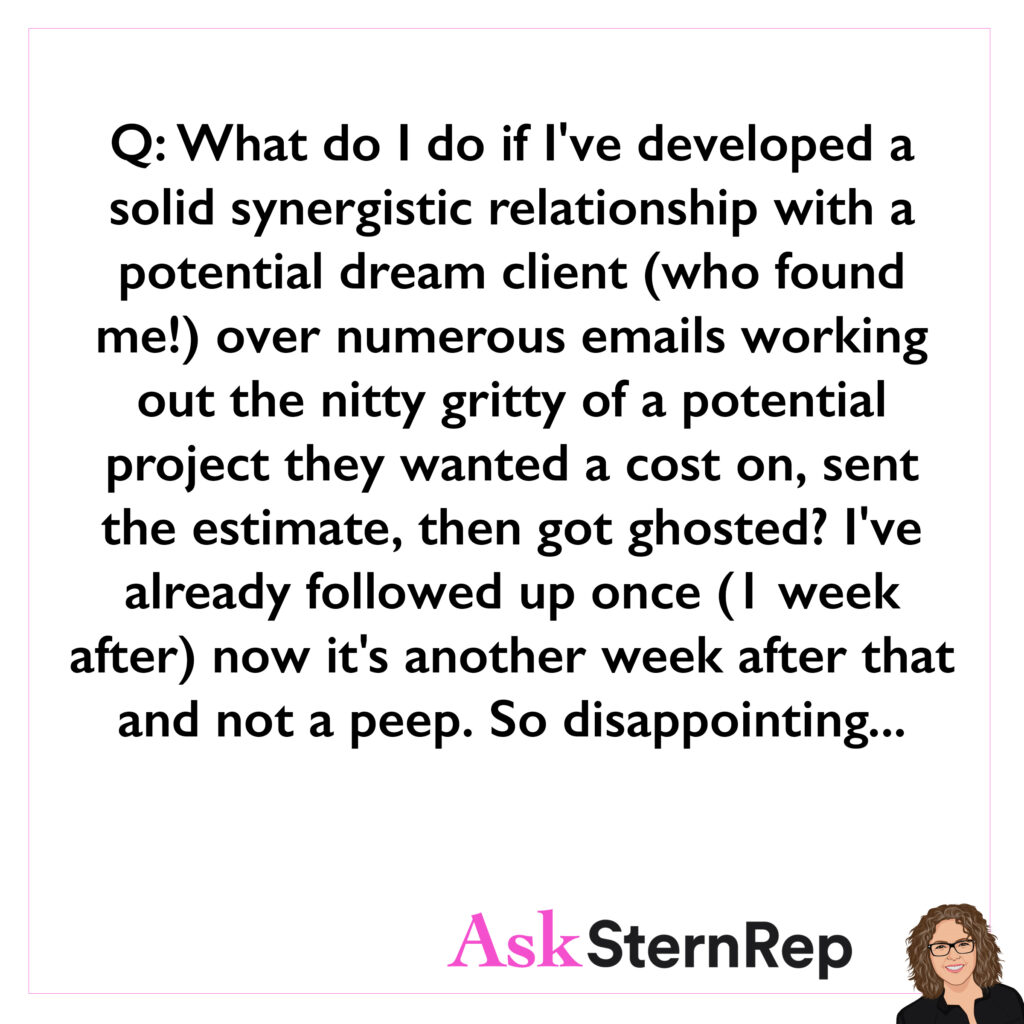
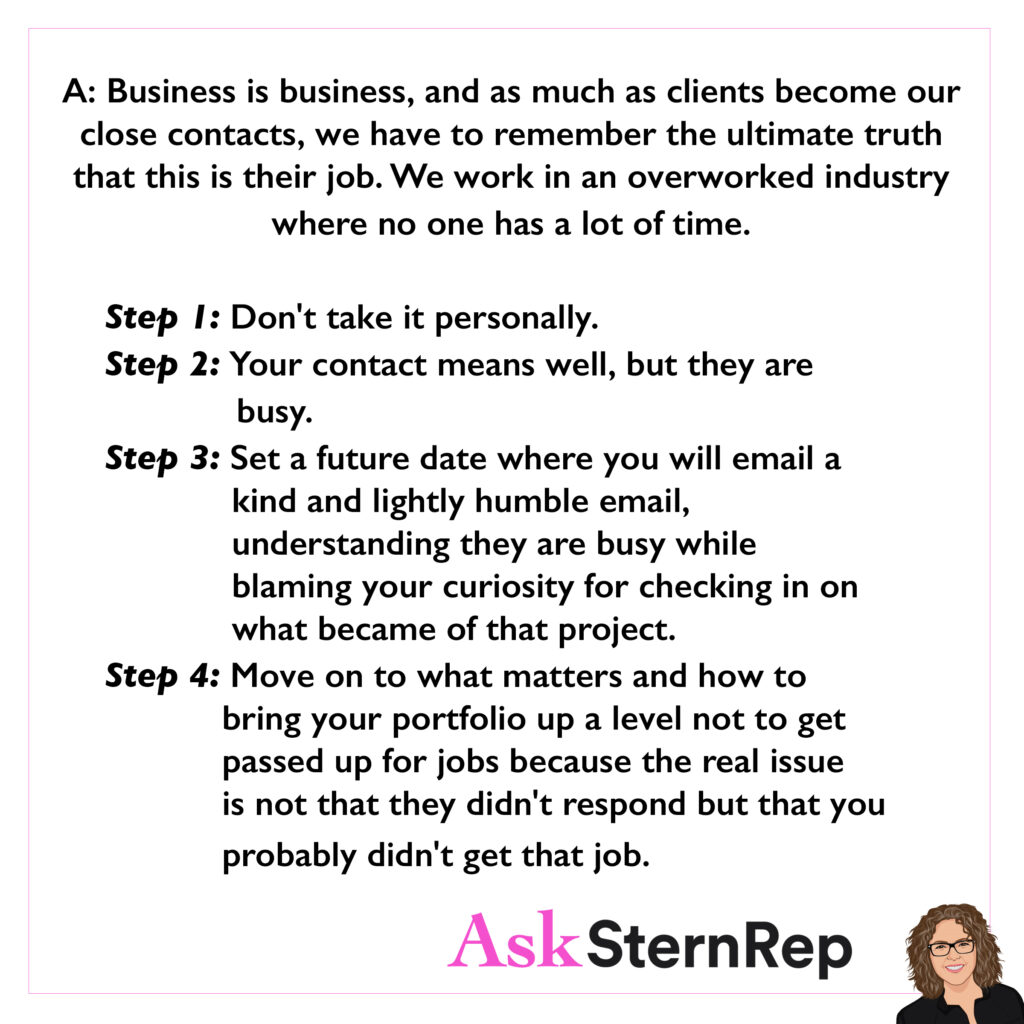
What do I do if I’ve developed a solid synergistic relationship with a potential dream client (who found me!) over numerous emails working out the nitty gritty of a potential project they wanted a cost on, sent the estimate, then got ghosted? I’ve already followed up once (1 week after) now it’s another week after that and not a peep. So disappointing…
Business is business, and as much as clients become our close contacts, we have to remember the ultimate truth that this is their job. We work in an overworked industry where no one has a lot of time.
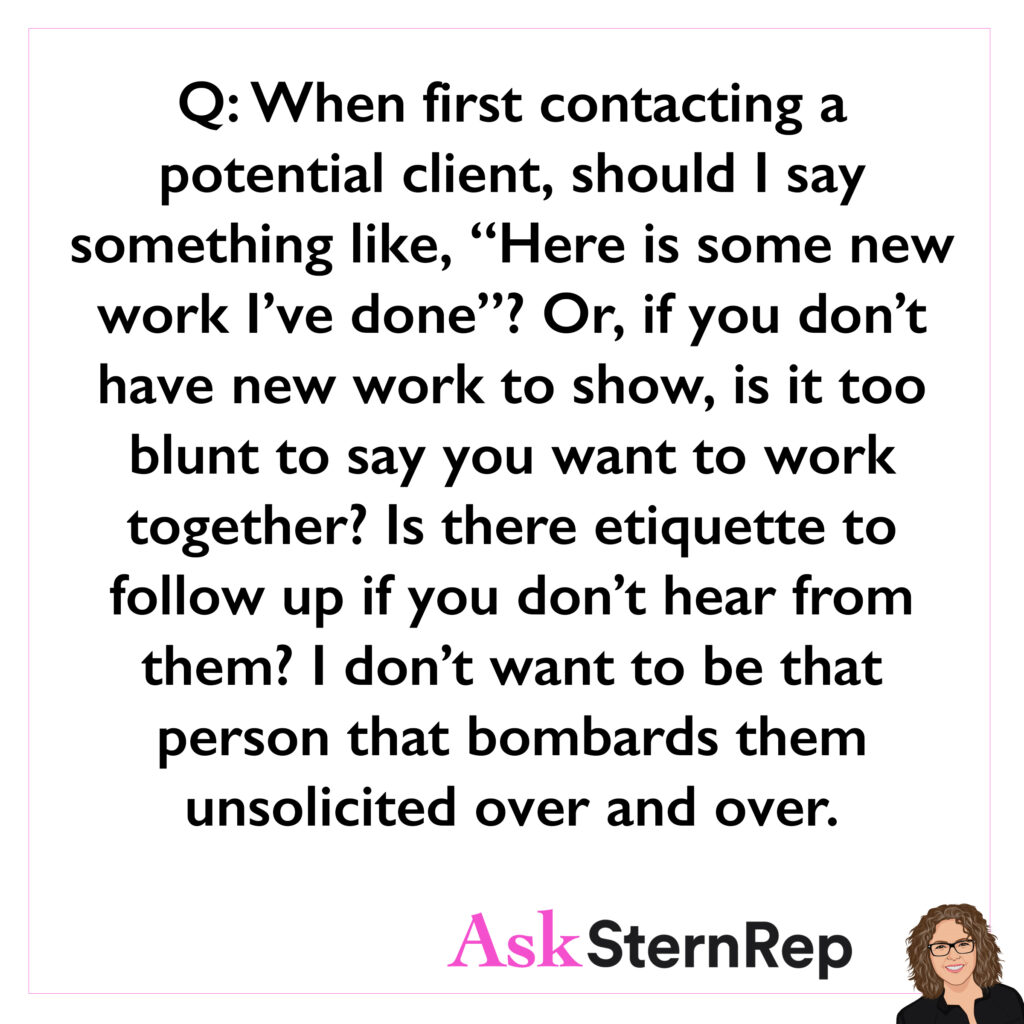
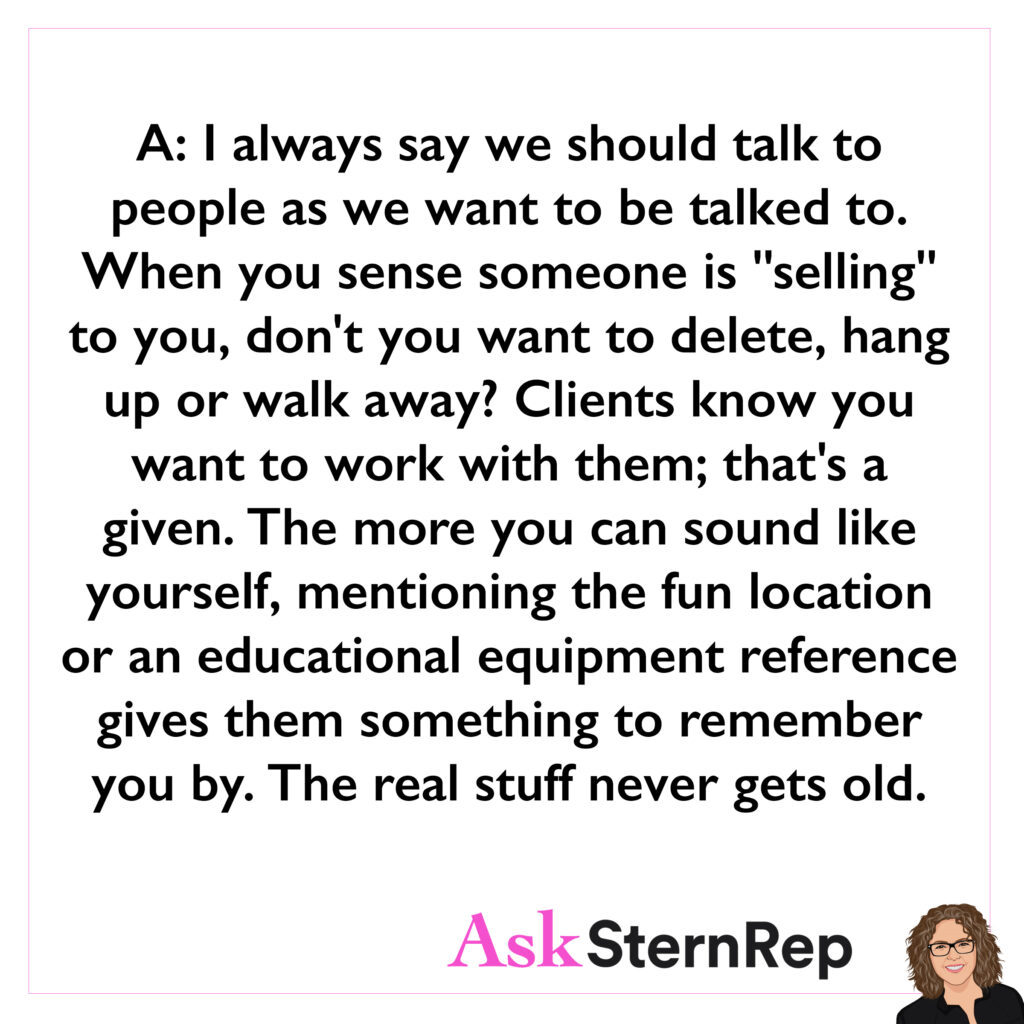
When first contacting a potential client, should I say something like, “Here is some new work I’ve done?” Or if you don’t have new work to show, is it too blunt to say you want to work together? Is there etiquette to follow up if you don’t hear from them? I don’t want to be that person that bombards them unsolicited over and over.
I always say we should talk to people as we want to be talked to. When you sense someone is “selling” to you, don’t you want to delete, hand up or walk away? Clients know you want to work with them; that’s a given. The more you can sound like yourself, mentioning the fun location or an educational equipment reference gives them something to remember you by, The real stuff never gets old.
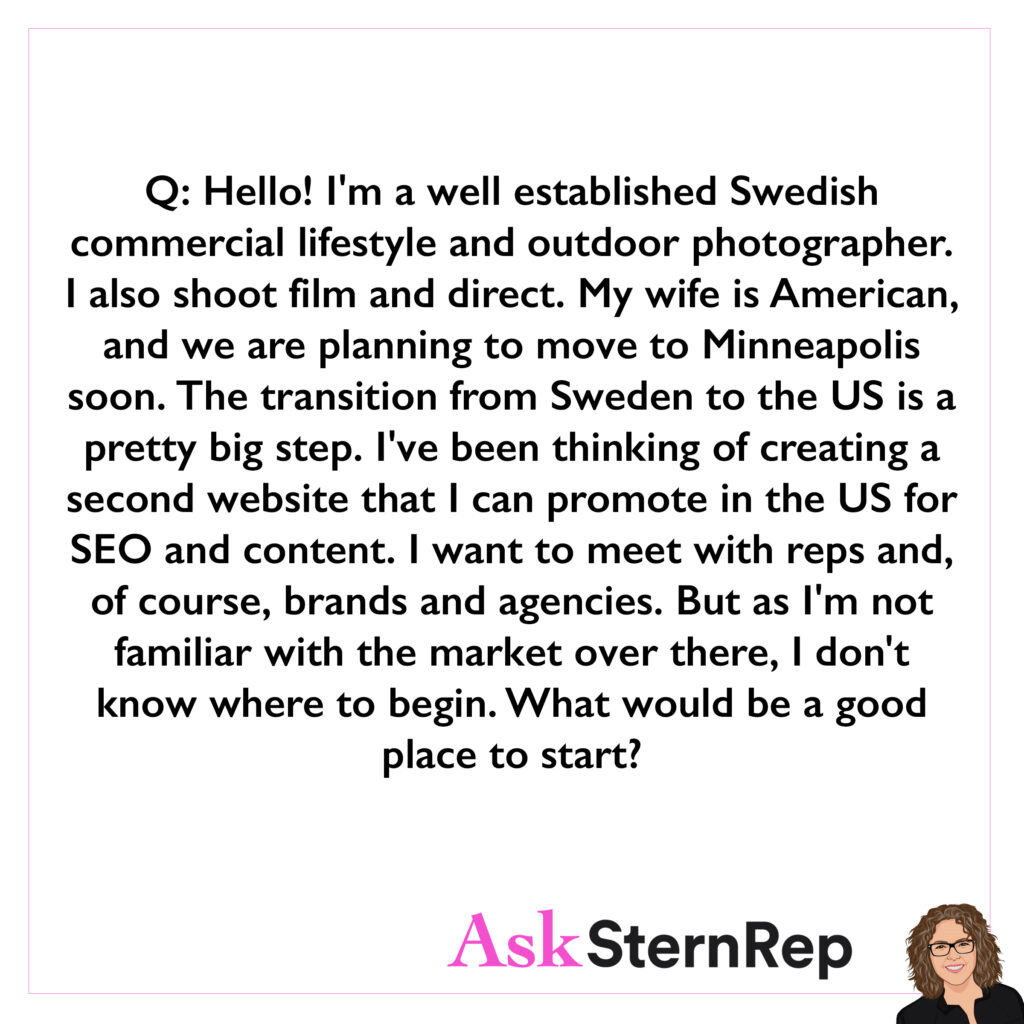
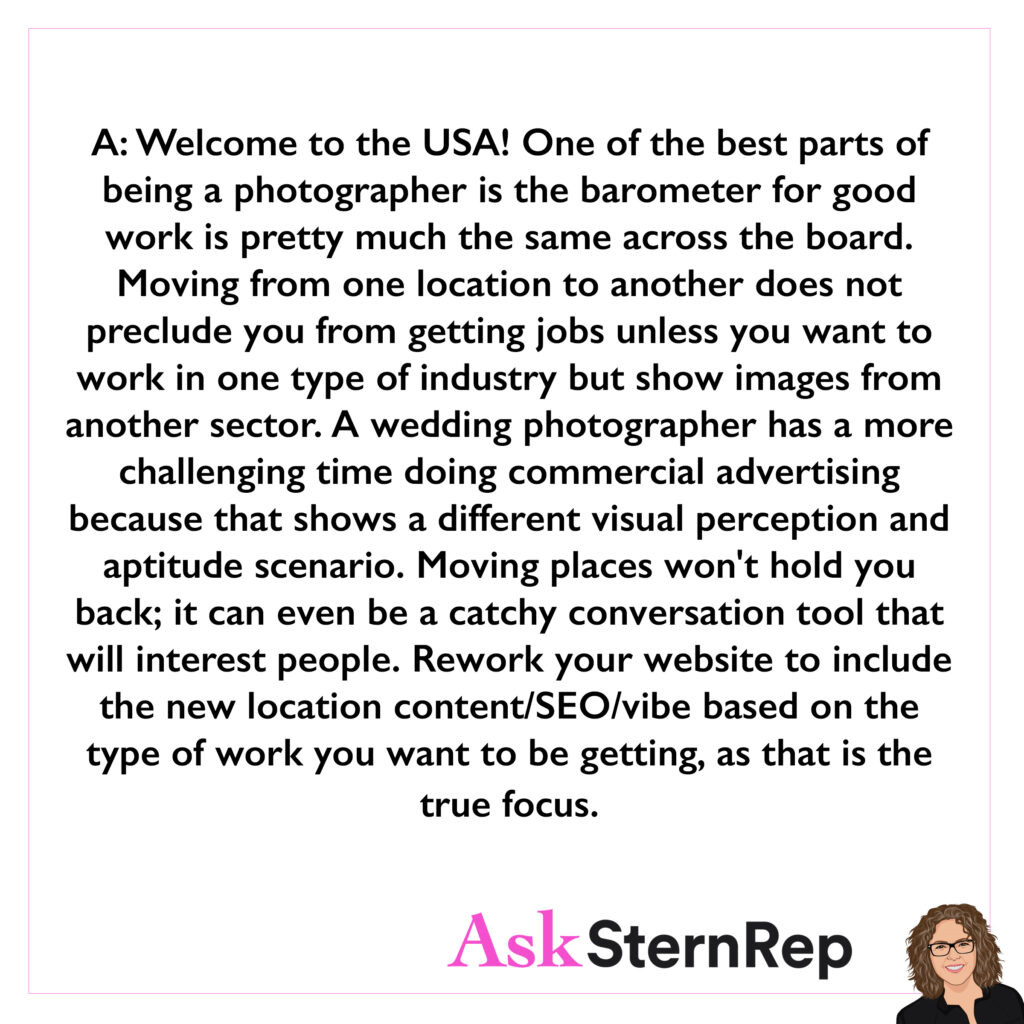
Hello! I’m a well established Swedish commercial lifestyle and outdoor photographer. I also shoot film and direct. My wife is American, and we are planning to move to Minneapolis soon. The transition from Sweden to the US is a pretty big step. I’ve been thinking of creating a second website that I can promote in the US for SEO and content. I want to meet with reps and, of course, brands and agencies. But as I’m not familiar with the market over there, I don’t know where to begin. What would be a good place to start?
Welcome to the USA! One of the best parts of being a photographer is the barometer for good work is pretty much the same across the board. Moving from one location to another does not preclude you from getting jobs unless you want to work in one type of industry but show images from another sector. A wedding photographer has a more challenging time doing commercial advertising because that shows a different visual perception and aptitude scenario. Moving places won’t hold you back; it can even be a catchy conversation tool that will interest people. Rework your website to include the new location content/SEO/vibe based on the type of work you want to be getting, as that is the true focus.